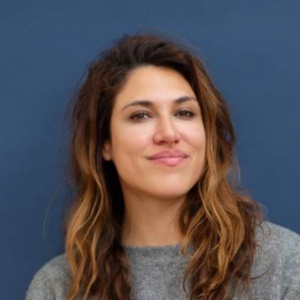Provider Spotlight: Alexandra Palma, MD
by Clinical Consulting Team

Alexandra Palma, MD is a physician with a background in Functional Medicine, Internal Medicine, and Anesthesiology. Her interest in Functional Medicine began in college when she studied Human Evolutionary Biology at Harvard University. The field taught her to think from an evolutionary and systems biology perspective, which she still brings to her ongoing studies and patient care.
Zandra attended medical school at Columbia University, College of Physicians and Surgeons. She wrote her thesis in the field of Contemplative Care after an apprenticeship with the Zen Buddhist monk Seigan Glassing, who taught her how to integrate mindfulness-based practices into the care for terminally ill patients. She trained in Internal Medicine and Anesthesiology in residencies at Maimonides and Montefiore Medical Centers of Albert Einstein College of Medicine. After residency she completed the Kresser Institute’s 12-month training in Functional Medicine.
DUTCH: What inspired you to become a healthcare practitioner?
Alexandra Palma, MD: I wanted to be a scientist from a young age (five-years-old, actually, after catching a Jane Goodall documentary on TV in my grandparents’ basement), but I think my excitement for human health developed over the course of my studies in Human Evolutionary Biology in college. As with all practitioners, every health challenge I personally faced in my young adult life reinforced my fervor for understanding the body.
DUTCH: What is your training?
Alexandra Palma, MD: I studied Human Evolutionary Biology at Harvard College (the undergraduate liberal arts college of Harvard University), attended Medical school at Columbia University College of Physicians and Surgeons, and trained in Internal Medicine at Maimonides Medical Center and did part of an Anesthesiology residency at Maimonides Medical Center. After leaving anesthesia to study and practice Functional Medicine, I completed a year of training in the ADAPT program from the Kresser Institute.
DUTCH: Describe your medical background/ practice?
Alexandra Palma, MD: Since finishing training in Functional Medicine, I have been seeing patients at Parsley Health in New York City and Los Angeles — a practice that bridges the gap between conventional primary care and Functional Medicine and seeks to change the delivery and experience of primary care. We operate in NYC, LA and SF.
DUTCH: What other functional testing do you use in your practice?
Alexandra Palma, MD: Plenty! Functional nutrient testing, gut testing (including SIBO breath testing, comprehensive stool analysis, parasitology, permeability assays, food intolerance), Cyrex Array series, organic acid testing, biotoxin and environmental toxicant assays, several types of genetic tests, testing for tick-borne infections and more.
DUTCH: How have you incorporated DUTCH Testing into your practice?
Alexandra Palma, MD: I use DUTCH to approach all endocrine issues of the HPA-T-G axis as well as investigation of chronic symptoms that could be explained by dysregulation of these systems.
DUTCH: What are the changes you have seen in your patients and practice since incorporating the DUTCH Test?
Alexandra Palma, MD: Before I joined our practice, the doctors were using a different four-point cortisol test and I think both the doctors and patients have benefited from the additional information that DUTCH provides. Seeing metabolite profiles is crucial to my formulation of a treatment plan and leads me to a more specific differential of root-causes.
DUTCH: Where do you see functional/ integrative medicine 20 years from now?
Alexandra Palma, MD: I think and hope that what we call Functional Medicine now will be considered standard of care in 20 years.
DUTCH: What do you like to do outside of work?
Alexandra Palma, MD: I grew up in Colorado and love to ski. I love yoga. I love playing with music. I love to make people laugh and love people who make me laugh. I can be easily convinced to travel for any of those delights. The travel itself is usually a means to one of the ends, but occasionally is in the spirit of pure spontaneity.


